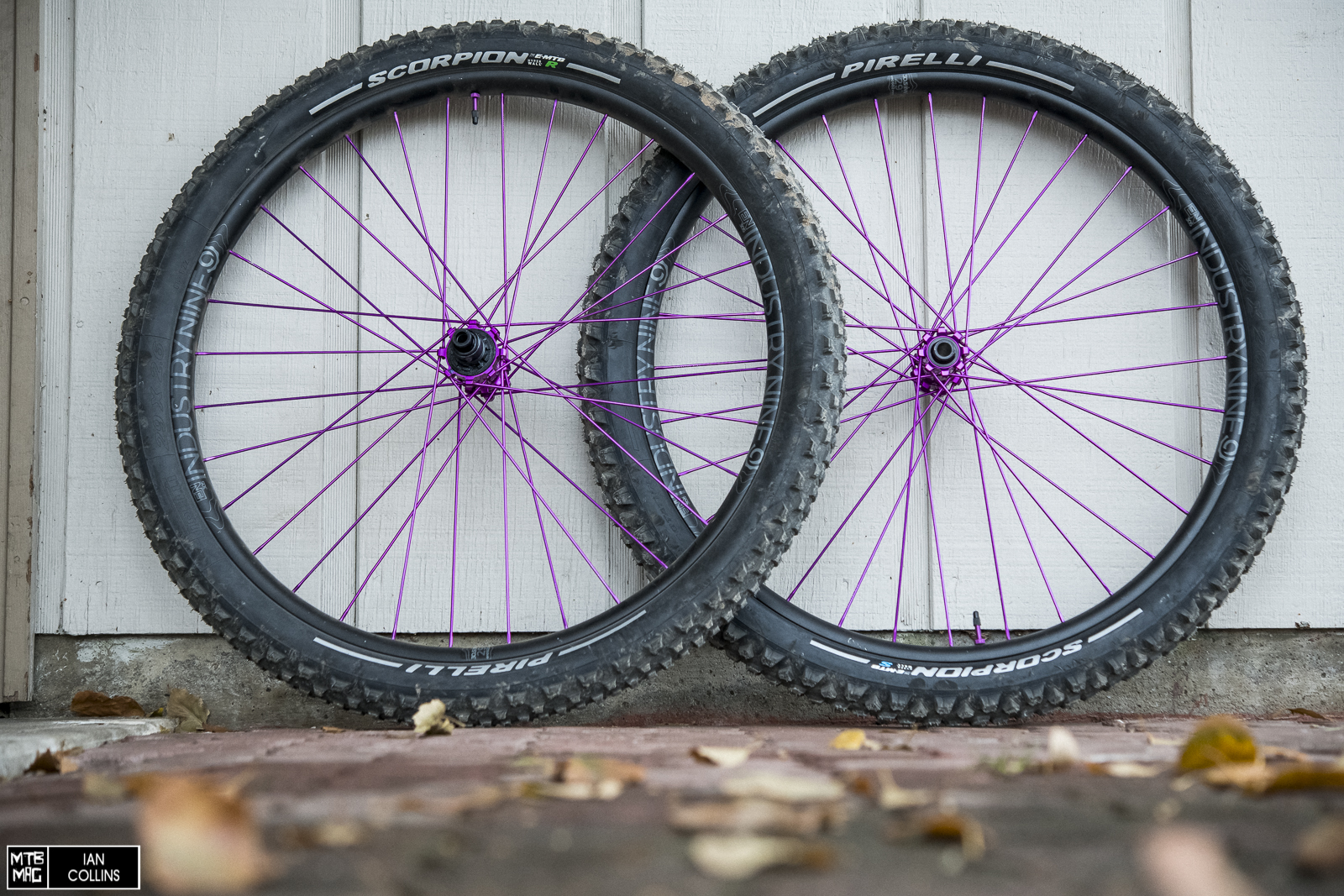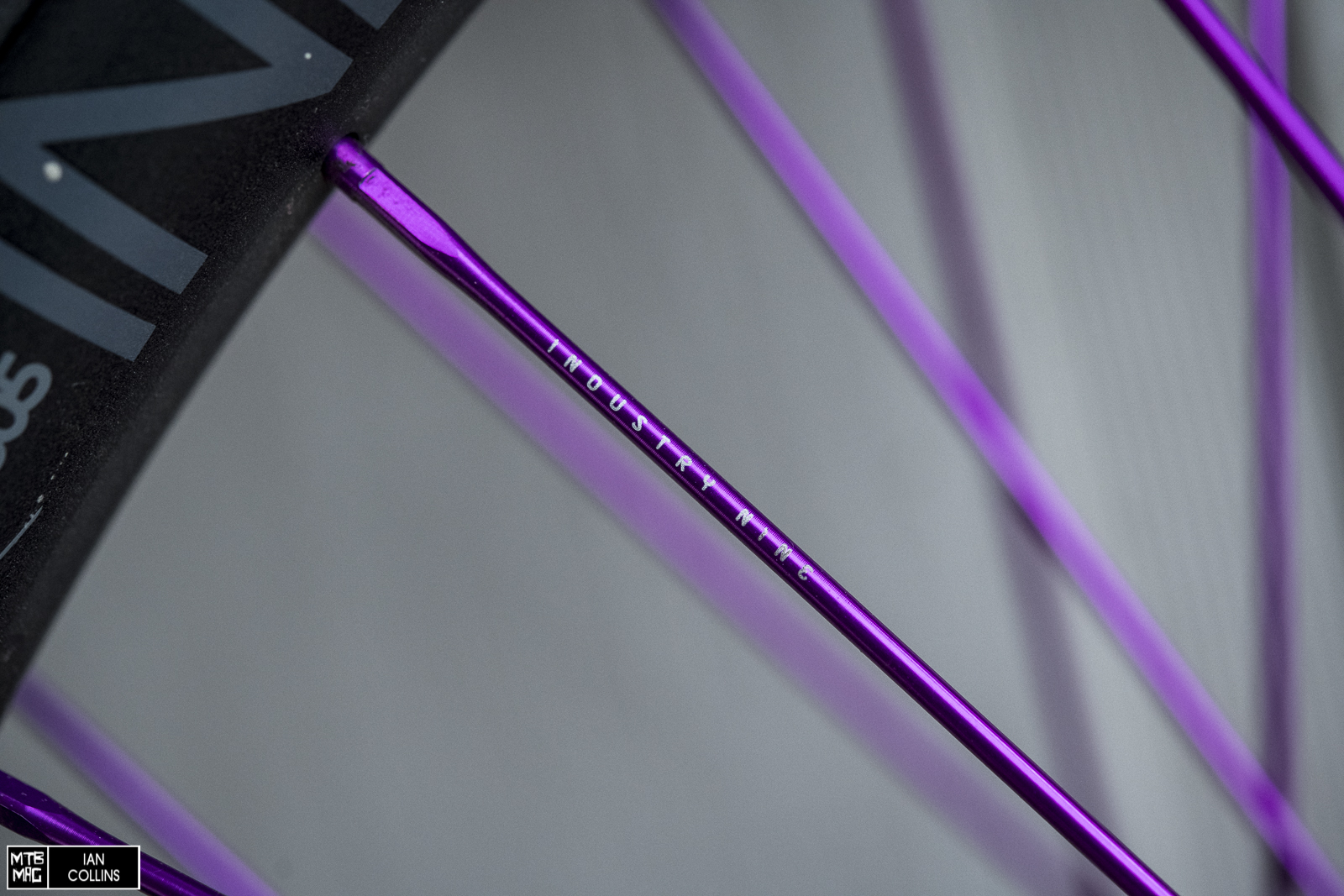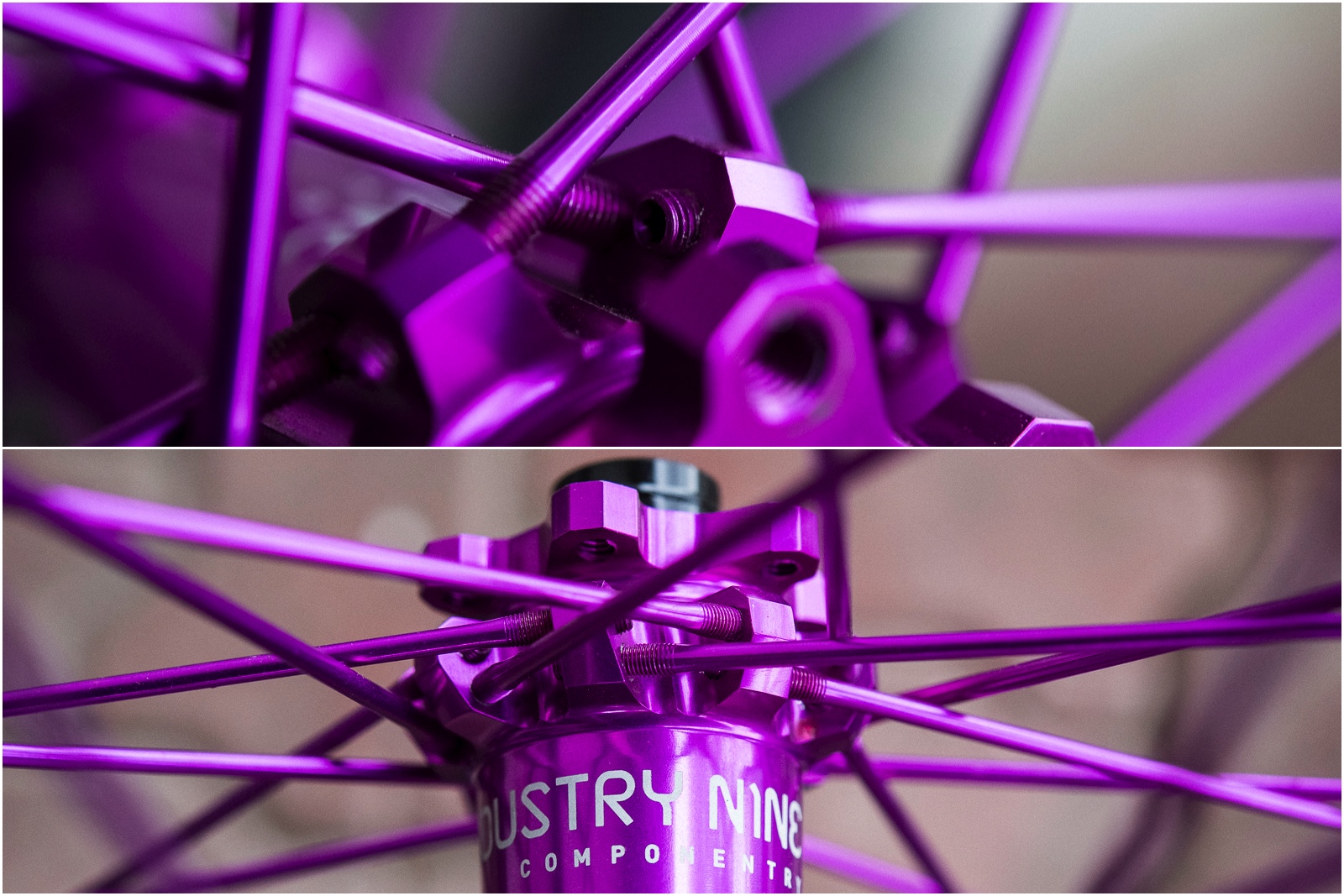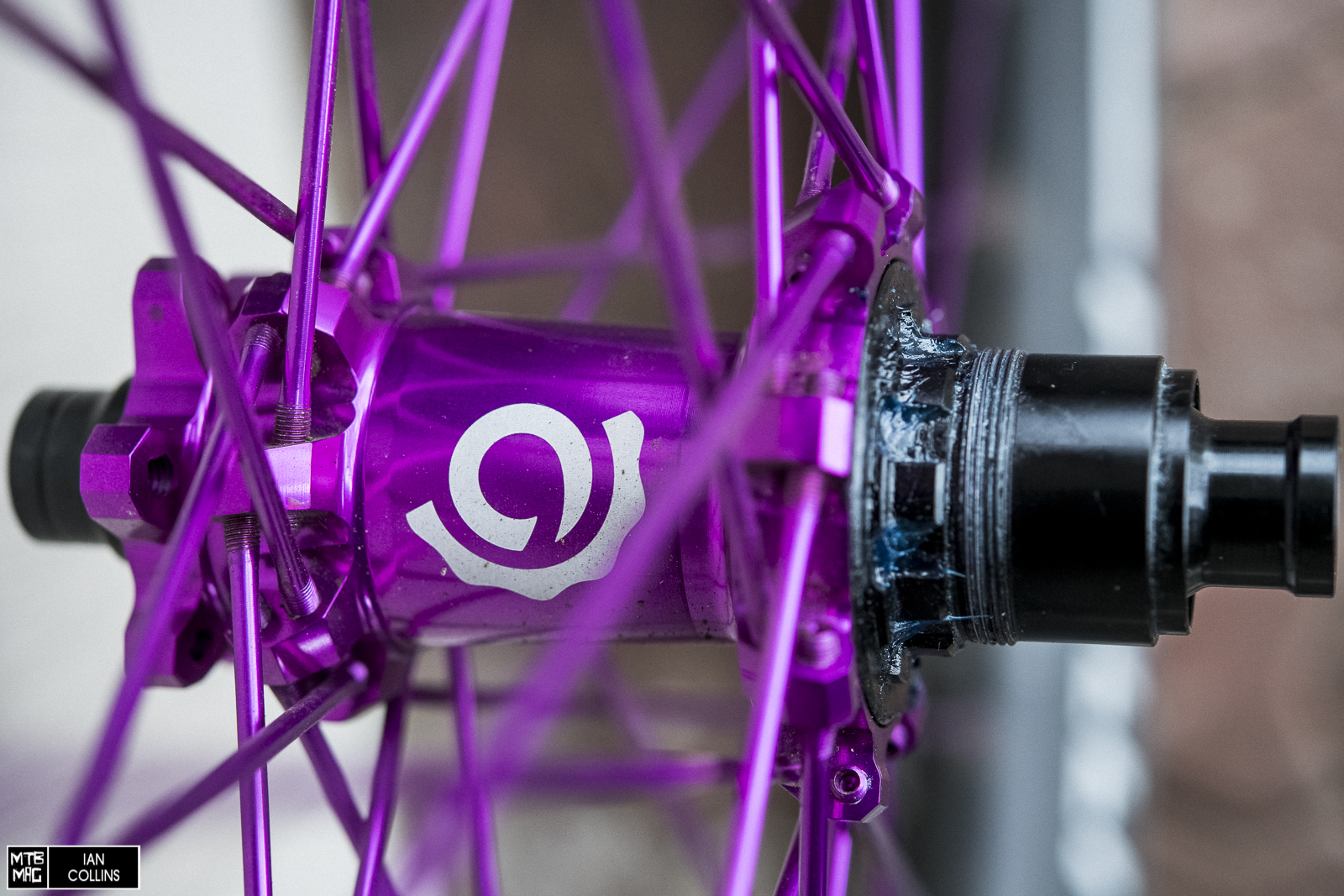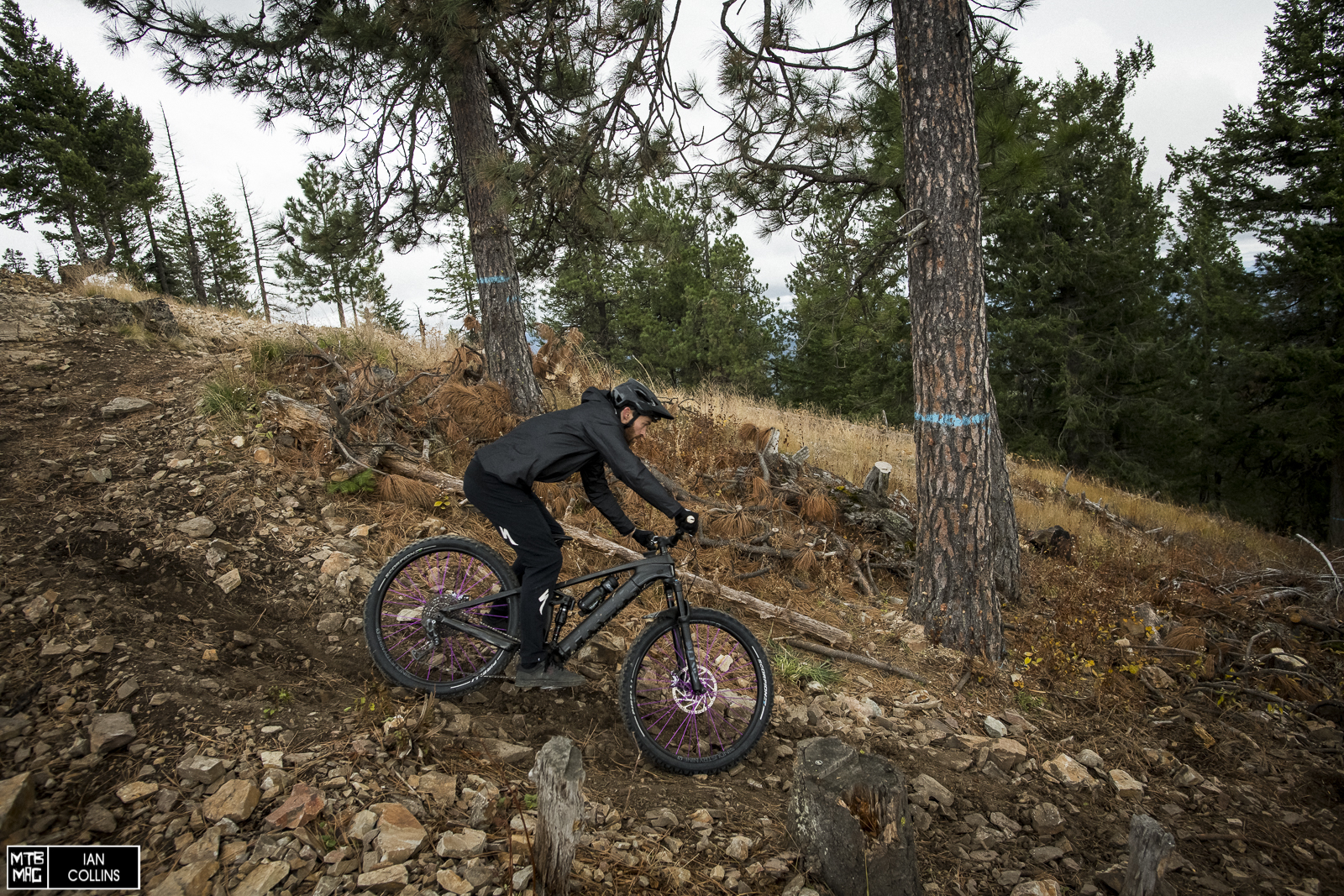[Tested] Industry Nine Enduro 305 V3
A few months ago Industry Nine sent us a set of their newly updated Enduro 305 wheelset, which are now in their third iteration. Aptly named for their 30.5mm inner diameter rim, as part of the update the wheels see a shallower rim profile, which I9 credits with boosting the vertical compliance. Another improvement is that the bead walls are 45% thicker, which will help them better survive heavy impacts. At the heart of it all is Industry Nine’s blazing fast Hydra hubs and their one of a kind direct pull aluminum spokes. There is also, of course, a great deal of colors and combinations for endless customization. Read on to see how they’ve been performing…
Details
- 26″, 27.5″ and 29″
- Rim width: 30.5mm inner diameter / 35.7mm outer diameter
- Microspline, XD and HG drivers available
- Standard, Boost and Super boost spacing options
- 690 points of engagement
- 32 hole
- 11 colors available
- Straight pull aluminum spokes
- 2.3″-2.6″ wide tire compatibility
- 250 pound rider weight limit
- Tubeless ready
- 1,825 grams (our scale – 29″ / Boost / XD)
- $1355.00 USD starting – $1,515.00 as tested
Starting with the spokes, Industry Nine uses a very unconventional methodology. While the vast majority of spokes on the market are steel, I9 spokes are made from aluminum for its more rigid ride property. To simplify things, they also forgo nipples altogether – the spokes have a head on them that butts up against the inner rim wall, and they then thread directly into the hub.
A closer look at the hub flange/spoke interface. Should you break a spoke, not to worry as it can be threaded out of the hub with a 2mm allen key.
As you can see above, there is no nipple but instead a squared off surface for tensioning and truing the spokes just as you would any other wheelset. Wheelbuilders take note: unlike standard straight pull spokes, you don’t have to worry about clamping the I9 spokes to prevent them from just spinning around while you’re trying to tension them. Also note the rim’s relatively shallow profile.
The spokes and hubs are available in roughly 11 colors, leaving you endless options for personalization.
At the heart of the Hydra hubs is an extremely impressive engagement system. They feature 690 contact points for engagement every 0.52°. This is accomplished via six double lipped pawls working with in unison with the 115 tooth drive ring.
On the trail
Since the Enduro 305 wheelset is rated for e-bikes, I figured – what better way to test a set of wheels than with an extra 20 pounds of chassis weight? So while I did manage a few rides on my fully pedal powered bike, I mostly rode them on a Trek Rail. Interestingly these wheels come in lighter than a couple of sets of carbon fiber complete wheelsets I’ve ridden lately. Not by much…maybe 50 grams or so, but it is worth mentioning for comparison’s sake.
Anyhow, from the get-go you can feel a perceptible improvement in both stiffness and tracking as compared to similar width aluminum rims laced with steel spokes. These improvements surely go further with larger wheel sizes and this aspect can largely be credited to the thicker and more rigid aluminum spokes. As a crude estimate, I’d place the overall on trail feel of the Enduro 305 roughly between a standard aluminum wheel and a carbon fiber wheel.
Keep in mind there is a range within both of the aforementioned categories themselves. Anyhow, back to trail feel…In terms of vertical compliance the new shallower rim profile is said to be more compliant. While I haven’t done any back to back testing compared to the prior model, I would parrot what I said about tracking and side to side stiffness above. While carbon wheels have a great range in their vertical compliance and I’d rate these as being about on par with most aluminum wheels of similar width.
That said, I don’t doubt that a shallower rim profile improved things in that realm – in terms of logic, it tracks. On the topic of width, I think that for most riding, from trail through DH duties, using 2.3-2.6″ tires with roughly a 30mm inner diameter rim is the sweet spot for getting just the right tire foot print. That width seems to strike a nice balance by providing a good footprint without having the tire want to roll excessively under heavy pressure in firm, snapped off turns and it was no exception with this wheelset.
As far as other attributes are concerned, you can take a deeper dive into the Hydra hubs in a more exhaustive test from a few months ago, here. In short, the hubs are some of the best in the industry. They are unbelievably smooth and offer freakishly fast engagement that feels instantaneous on trail. So much so that with some bikes that have quite a bit of pedal kickback inherent to their kinematics, the Hydras can exacerbate that slightly.
If you’re a total geek like me, you can consider this route. For the extent of my testing I had a couple of pretty cringe worthy moments with rocks smashing rims. I flatted once but the rims themselves remained unscathed and the spoke tension remained even, keeping the wheels true and round. All in all, durability has been excellent leaving me no bones to pick. Lastly, on the topic of maintenance – clean and repacks to the drive mechanism are tool free and simple as can be.
You just tug on the driver body to expose the drive ring and pawls, then wipe them down and re-lubricate the parts as needed. Slightly more viscous lube will quiet the very loud buzz that they emit, while thinner lubes will almost amplify it.
Overall
While most of the attention in the wheel world is given to carbon fiber, that could be in large part due to all of the noise around the rapid advancements being made to carbon fiber rims over the last few years. Something we shouldn’t overlook is that while an aluminum rim may seem straightforward or even downright rudimentary, that doesn’t mean that aluminum wheel technology has simply stagnated. On the contrary it sees continuous refinements to ride quality, strength and rigidity.
With all of that in mind, $1355+ is a pretty penny for a pair of aluminum wheels. To be swayed by the Enduro 305 you likely need to be the type of consumer who prefers aluminum rims since they get dented up and keep rolling, whereas carbon fails catastrophically when it does go. It also means you likely must have an affinity for boutique hubs. Alas it is the Hydras and the spokes which are the root factors of the cost.
It is worth considering that for just $200 more I9 also offers carbon wheels of similar duty laced with standard spokes to their 1/1 hubs. Additionally, the Enduro 305 V3 rim itself – while unassuming and easily overlooked – is one of the best aluminum rims available both for its ride quality and its strength to weight ratio. All in all, for aluminum rim diehards, these are the cream of the crop in terms of complete wheelsets.
*this article has been edited for clarity.
The post [Tested] Industry Nine Enduro 305 V3 appeared first on MTB-MAG.COM.

